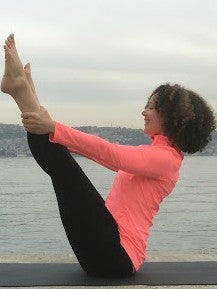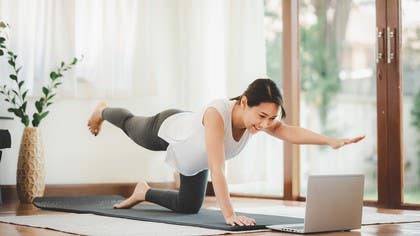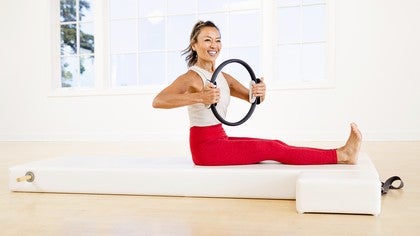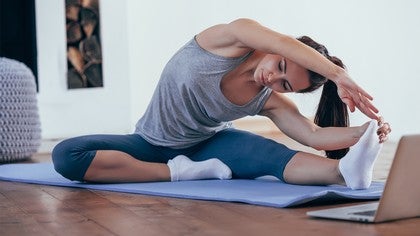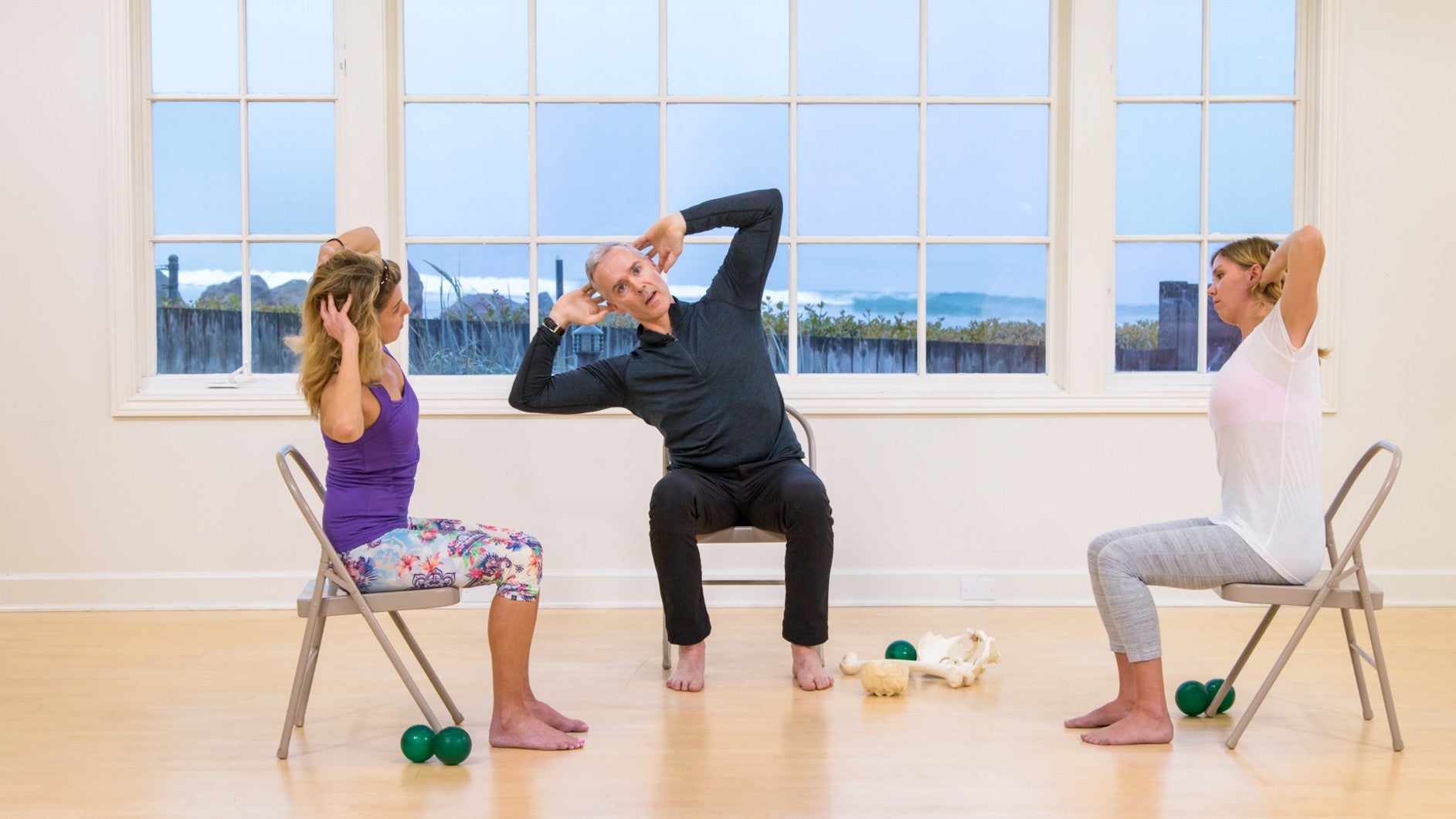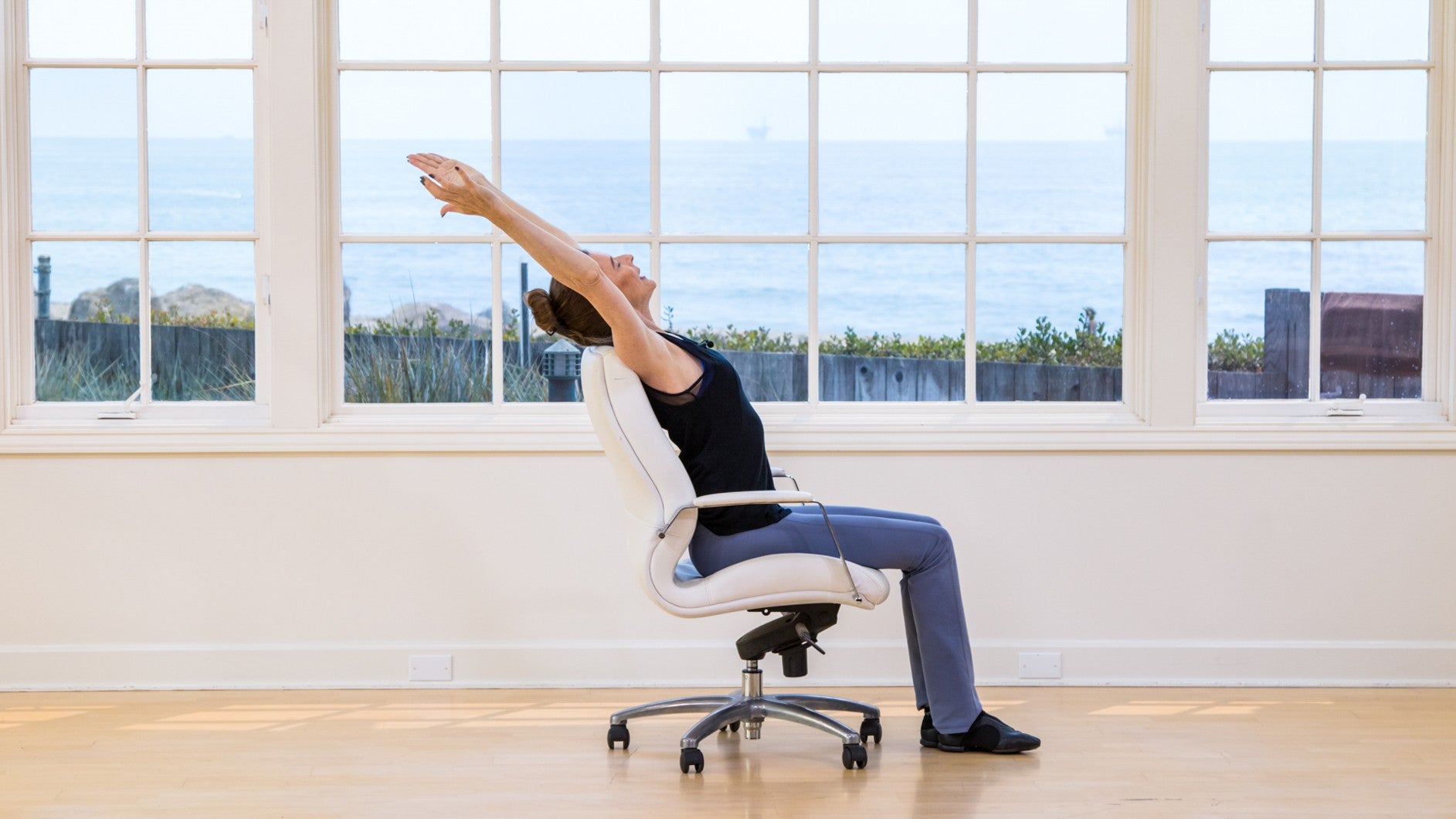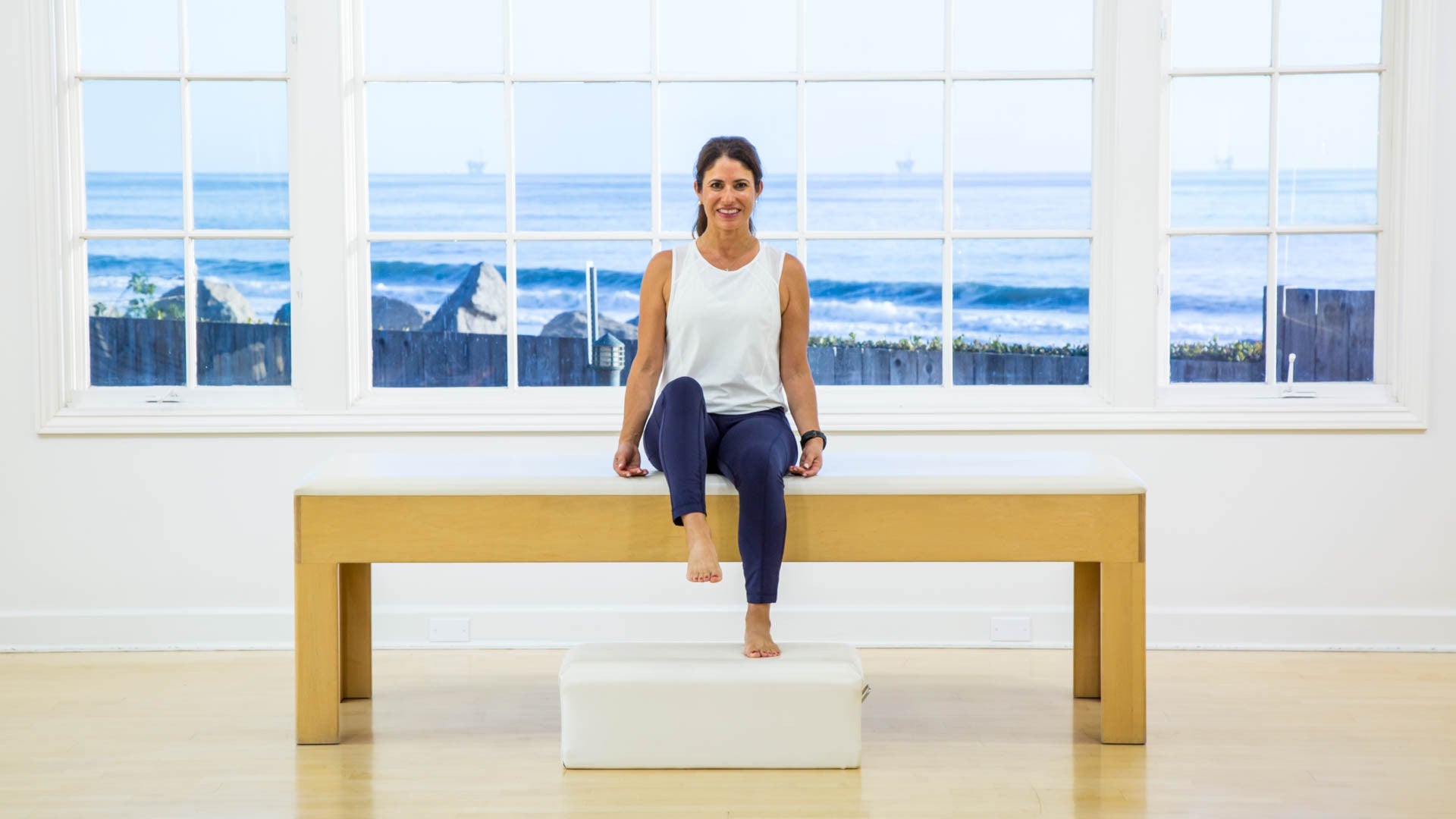
Pilates at Your Desk
As our lives continue to shift online, the need for more movement is crucial. The trend of working remotely, necessitated by the global pandemic, is expected to continue. Many of us are feeling the effects of reduced physical activity from our increased reliance on digital technology, as well as no longer having to commute to a workplace, taking advantage of online shopping, and spending lots more time sitting.
The effects of prolonged sitting include increased risk of heart disease and diabetes as well as poor posture, pelvic floor dysfunction, and back, hip, knee, and neck pain. The phrase “sitting is the new smoking” has emerged in recent years to describe the myriad physical effects of a sedentary lifestyle.
How can we combat the effects of all those hours spent in a chair?
Even taking two to three hour-long Pilates classes each week can’t undo the damage caused by sitting for 12 to 14 hours a day. For many of us, upping our physical activity is not realistic due to limited space, time, and funds.
What is realistic?
Pilates at your desk! It’s the perfect burst of physical activity for when you can’t get away for a stroll outdoors or you don’t have the time for a full workout.
We’ve created a list of modified Pilates exercises to incorporate into your workday. Try doing this five-minute series several times a day. Not only will your body feel great, but it will also leave you mentally revitalized as well. If you’re already back at the office, perhaps you can inspire your colleagues to try them, too.
Breath and Posture
Breath is the cornerstone of the Pilates method and you’d be hard-pressed to find a studio anywhere in the world that doesn’t talk about the breath. Whether the teacher takes a few moments to focus solely on the breath or not, it’s incorporated into every exercise on every apparatus and is one of the principles of Pilates.
If you’re slumped in your chair, your breath is restricted. Taking a moment to get up and move away from your desk or even simply sitting up tall in your chair and focusing on your breath is a great way to connect to the body and regulate the nervous system.
The following exercises can be performed seated or standing.
Belly Breathing
Sit tall with your shoulders over your sitz bones. Place one hand on the lowest part of your belly and one on your back. Inhale through the nose and inflate the belly into your hands. Think of lifting or ‘zipping’ the abdomen in and up. Repeat three to five times.
Lateral Breathing
Remain upright and place your hands at the side of your ribs or let them hang by your sides. Imagine there’s an umbrella at the level of your ribs and chest. Inhale to open the umbrella, feeling the ribs expand to the sides, as well as a sense of spaciousness between the shoulder blades and sternum. Repeat three to five times.
Box Breathing
Begin with two counts per breath and work up to four to five counts. Inhale for two counts through the nose, hold the breath for two counts, exhale through the nose for two counts, and hold for two counts. Repeat three to five times.
Spinal Movements
Our spine is meant to move in all directions, not stay in one shape for hours upon hours. That's why sitting for long periods makes us feel stiff and uncomfortable. Performing these simple movements is a great way to lubricate the spine and get the circulation flowing. All of the movements below are seen throughout the Pilates repertoire.
Spinal Twist
Sit up tall in your chair and place your hands behind your head or across your chest. Inhale to lift the waist and exhale as you slowly rotate your torso to one side. Keep the hips still so that the rotation takes place in the spine. Inhale to prepare, and exhale as you return to center. Repeat three times in each direction.
Side Bend
Inhale to lengthen the spine. As you exhale, lift up and over into a side bend. Try to keep the opposite hip anchored on the chair, or avoid hiking the opposite hip if you are standing. Inhale to prepare and as you exhale, try to maintain a long spine as you return to center. Repeat three times, alternating sides.
Seated Roll Down
The Roll Down is a staple of the Pilates method and just as beneficial while done at your desk (just don't hit your head on your keyboard). Inhale to prepare, and as you exhale, roll the chin towards the chest and continue to roll down as if you’re peeling your spine away from a wall. Exhale as you return to the starting position, stacking the spine one vertebrae at a time. Repeat three times.
Chest Lift
Place one hand under your chest where your ribs meet, and the other hand behind the head for support. Inhale to reach the top of your head to the ceiling. Let the eyes climb up the wall in front of you as you arch the head, neck, and shoulders back slightly. Keep the abdominals pulled in and avoid letting the ribs splay out. Exhale as you return to the starting tall spine position.
Seated Figure Four Stretch
While seated, place your right ankle across your left knee. Keep your left foot flat on the floor and the right foot flexed to protect the knee joint. Place the palms of your hands on your thighs and gently lean forward around 45 degrees, keeping the spine long. Hold the shape for a few breaths, feeling a stretch in the right hip, and return to the starting positions. Repeat three times on each side.
Adding these simple exercises to your wellness toolbox will help combat the effects of being at your desk for long hours. Aim for five minutes, a few times a day to help you feel more alert, refreshed, and productive.
We love hearing from you, please share your takeaways in the comments below.
Comments

You need to be a subscriber to post a comment.
Please Log In or Create an Account to start your free trial.





